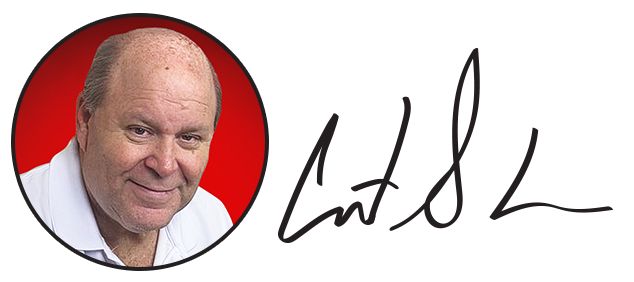
Landing a job interview for a senior-level position is a significant achievement, but the real challenge begins once you're in the room (or on the screen). As a seasoned professional, you have the experience, skills, and knowledge, but how you present these can make or break your chances of getting the job. In this post, we'll explore practical tips that can help senior professionals excel in job interviews and secure the role they deserve.
1. Do Your Homework
Before walking into any interview, preparation is key—especially for senior professionals. You should have a deep understanding of the company, its culture, values, and recent developments.
Actionable Tip: Research the company’s website, recent news articles, and its leadership team. Use LinkedIn to learn more about the key stakeholders you’ll be meeting. Familiarize yourself with the company's financial health, industry position, and challenges. This allows you to tailor your responses to align with the company’s goals and pain points.
2. Craft Your Executive Summary
When you’re asked the inevitable "Tell me about yourself," you want to deliver a strong and concise executive summary of your career.
Actionable Tip: Prepare a 2-3 minute overview of your career, emphasizing your most significant accomplishments. Focus on leadership roles, the strategic impact you've made, and your key skills that match the job description. Avoid going into too much detail about early career experiences unless they are directly relevant.
3. Show Strategic Thinking
Senior roles often require you to be more than a manager—you’re expected to think strategically and make decisions that affect the company’s direction.
Actionable Tip: During the interview, demonstrate your ability to think long-term. Use examples where you implemented a strategic plan or spearheaded a major initiative. Highlight your decision-making process and how you balance short-term wins with long-term goals.
4. Demonstrate Leadership and Team Building
Companies are looking for leaders who can motivate and grow teams, especially at the senior level.
Actionable Tip: Use specific examples to showcase your leadership style and ability to build high-performing teams. Focus on how you've developed talent, improved team collaboration, and navigated difficult situations. Share examples where you’ve empowered employees or improved team culture.
5. Quantify Your Achievements
Hiring managers at the senior level need to know the measurable impact you’ve had in previous roles. Quantifying your achievements demonstrates the tangible value you bring to the company.
Actionable Tip: When discussing past roles, always back up your statements with numbers. For example, instead of saying, "I improved sales," say, "I increased sales by 25% over two years by implementing a new sales strategy." This shows that you can produce results and have a history of success.
6. Communicate Like an Executive
At a senior level, communication skills are critical. How you articulate your thoughts and present ideas will be closely scrutinized.
Actionable Tip: Practice communicating your thoughts in a clear, concise, and confident manner. Make sure you’re comfortable discussing complex topics simply, as you may need to explain your vision to both C-suite executives and junior employees. Pay attention to body language, tone, and clarity during the interview.
7. Address Gaps or Job Changes with Confidence
Many senior professionals may have career gaps or multiple job changes due to layoffs, transitions, or personal reasons. It’s important to address these with confidence and transparency.
Actionable Tip: Be upfront about career gaps or transitions and explain how they have made you more adaptable, resilient, or strategic. Focus on what you’ve learned during these periods and how you've continued to develop your skills.
8. Prepare for Behavioral Questions
Behavioral interview questions are common at the senior level to assess how you handle real-world challenges. These questions are designed to gauge your leadership abilities, problem-solving skills, and how you handle pressure.
Actionable Tip: Use the STAR method (Situation, Task, Action, Result) to structure your responses. For example, if asked, “Tell me about a time when you dealt with a major business challenge,” briefly explain the situation, the task you had to complete, the actions you took, and the results of those actions.
9. Ask Insightful Questions
Interviews are a two-way street. Asking insightful, well-researched questions shows your interest in the company and helps you evaluate if the company is a good fit for you.
Actionable Tip: Prepare thoughtful questions that reflect your understanding of the company’s challenges and vision. For example, you might ask, “What are the most important strategic priorities for the leadership team over the next 12 months?” or “How does the company approach leadership development for its executives?”
10. Follow Up Like a Pro
After the interview, don’t underestimate the importance of following up. A well-crafted thank you email reinforces your interest in the position and helps you stand out from other candidates.
Actionable Tip: Send a personalized thank-you note to each interviewer within 24 hours. Reference specific points from the conversation, reaffirm your interest in the role, and briefly restate why you are the best fit for the position.
Final Thoughts
Interviews at the senior level can be challenging, but with thorough preparation and the right mindset, you can position yourself as the ideal candidate. Focus on your strengths, back up your achievements with real data, and demonstrate your ability to lead and think strategically. By doing so, you’ll not only impress your interviewers but also increase your chances of landing the job.
Are you a senior professional preparing for your next big interview? Contact us today for personalized coaching that will help you confidently present your best self and win the job.

Curt Skene
FOUNDER
Career Network Club